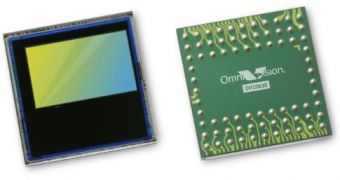Hardware manufacturers really seem to take an interest in the automotive market since, after Fujitsu, another company is set to make it big in this world, OmniVision just announcing its OV10630 image sensor that is capable of recording 720p HD video while also featuring a high dynamic range and low-light sensitivity.
Tuned in order to cater to the needs of the automotive market, OmniVision says the OV10630 is ideal for applications that perform vision and sensing functions concurrently, this solution being able to simultaneously deliver high image quality and scene information content.
Built upon a 4.2-micron pixel OmniPixel3-HS architecture, that comes with a proprietary HDR processing technology, this chip is able to deliver an impressive image quality even in the most demanding lighting conditions thanks to an automatic dynamic range control that adapts to the amount of light available in the particular environment it operates.
According to OmniVision this should eliminate many typical HDR image sensor artifacts such as motion ghost artifacts and other unwanted effects making it especially well suited for lane departure warning, object detection and collision warning and avoidance systems.
"The OV10630 achieves a new benchmark in automotive image sensing applications, further out-distancing the closest competing devices in terms of performance," said Inayat Khajasha, senior product marketing manager for automotive products at OmniVision.
"Its ability to deliver color HDR images in HD format, even under the toughest operating conditions, makes it a very attractive choice for next-generation automotive applications."
The OV10630 provides users with 720p HD video at 30 frames per second, the sensor also incorporating a number of automotive-specific features to support system health, including a temperature sensor that can automatically disable this unit if it detects dangerous operating conditions.
As far as availability goes, the OV10630 is currently sampling and is undergoing AEC-Q100 qualification, OmniVision scheduling this for mass production in the second quarter of 2011.
However, the company doesn't state what automotive manufacturers will use this in their vehicles, so we don't know how much time will pass until we will see this inside our car.

 14 DAY TRIAL //
14 DAY TRIAL //